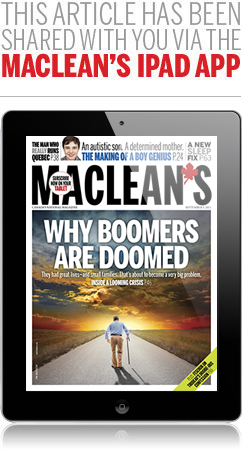
Most of Ella Berthoud’s patients are young professionals: cosmopolitan careerists in their 30s or 40s. Some are burdened with anxiety. Some feel adrift in their mid-lives. Many are approaching rites of passage: a first child, retirement, a gap year in India, the death of a spouse. But others have more singular afflictions. One patient was hooked on chick lit, and “terrified of reading anything more demanding.” A young couple was eager to rekindle a fizzling romance. Berthoud—a London-based “bibliotherapist”—has heard it all. In each case, the prescription is the same: Read a book.
“Bibliotherapy” is gaining ground in England. At its core is a simple concept: that literature can treat a host of mental malaises; that reading can be deeply healing, and in predictable ways. Prescription-wielding practitioners in this budding field have been, until now, librarians or lit professors or sagacious bookstore owners. Novels are medicine. And patients seek self-reflection as an elixir. But, as a small handful of universities and institutes begin to offer formal bibliotherapy training, doctors (the real kind) are taking note, dispatching patients not to pharmacies, but to local libraries.
Berthoud began her career as a literature student at Cambridge University. Her friend Susan Elderkin had the dorm room next door. “Over the years,” says Berthoud, “we prescribed fiction to each other, to family and friends. We saw ourselves as book doctors.” Years later, Berthoud (then an artist) and Elderkin (a novelist) connected with the pop philosopher Alain de Botton, who was busy setting up the School of Life, a secular cultural institution in London. They began offering book therapy there, and now run London’s most voguish bibliotherapy enterprise. Their book, The Novel Cure: An A-Z of Literary Remedies, is due out this fall. O
ne-on-one sessions begin with a questionnaire. “How would you describe your relationship to books?” patients are asked. “Do you always finish the books you start?” “What is missing from your life?” Then, a private session. “Some people don’t tell you much,” says Berthoud. “Other people tell you about the affair they are having with their boss.” Some seek relief from trauma. Others are after bespoke librarian services. All get a tailored list of recommendations, mostly fiction.
The idea that fiction can be therapeutic is not new. Ailing Second World War vets were given books to heal their fragile post-war minds. Book clubs have long featured in psychiatric institutions, elder-care facilities and homes for at-risk youth. An Atlantic Monthly article from 1916 profiled a gentleman bibliotherapist who warned that Emerson’s essays “should be shaken before using.” In 1999, novels were sent to those displaced by mudslides in Venezuela.
Among doctors, bibliotherapy is increasingly viewed as a potent tool. Britain recently launched a national bibliotherapy scheme called “Reading Well Books on Prescription.” Local libraries have been stocked with 30 self-help books, which GPs may prescribe to patients. Libraries and universities have also drawn up book lists. The city of Westminster, for instance, recommends Prodigal Summer by Barbara Kingsolver.
At the University of Liverpool, professor Philip Davis runs an M.A. in Reading in Practice. “The medicalizing of human sorrow is becoming a scandal.” Instead of grasping for medication, he says, patients should read works by Milton or Wordsworth or Doris Lessing, books that can “normalize” loss and pain.
Canadian efforts are also under way. Hoi Cheu, a professor at Laurentian University (his Ph.D. was on the later works of James Joyce) is a member of the Canadian Applied Literature Association; he works with medical students, social workers and palliative-care researchers. “In Europe, bibliotherapy is bigger than music therapy,” he laments. “In Canada, it’s rarely heard of—but we are rising.” A lot of interest, he says, comes from Aboriginal communities.
Questions loom. Could some novels cause more harm than good? Could Sylvia Plath’s poetry push a shaky reader off the mental edge? Still, perhaps the ancient Greeks had it right. One mustn’t forget Apollo was the god of both poetry and medicine.

